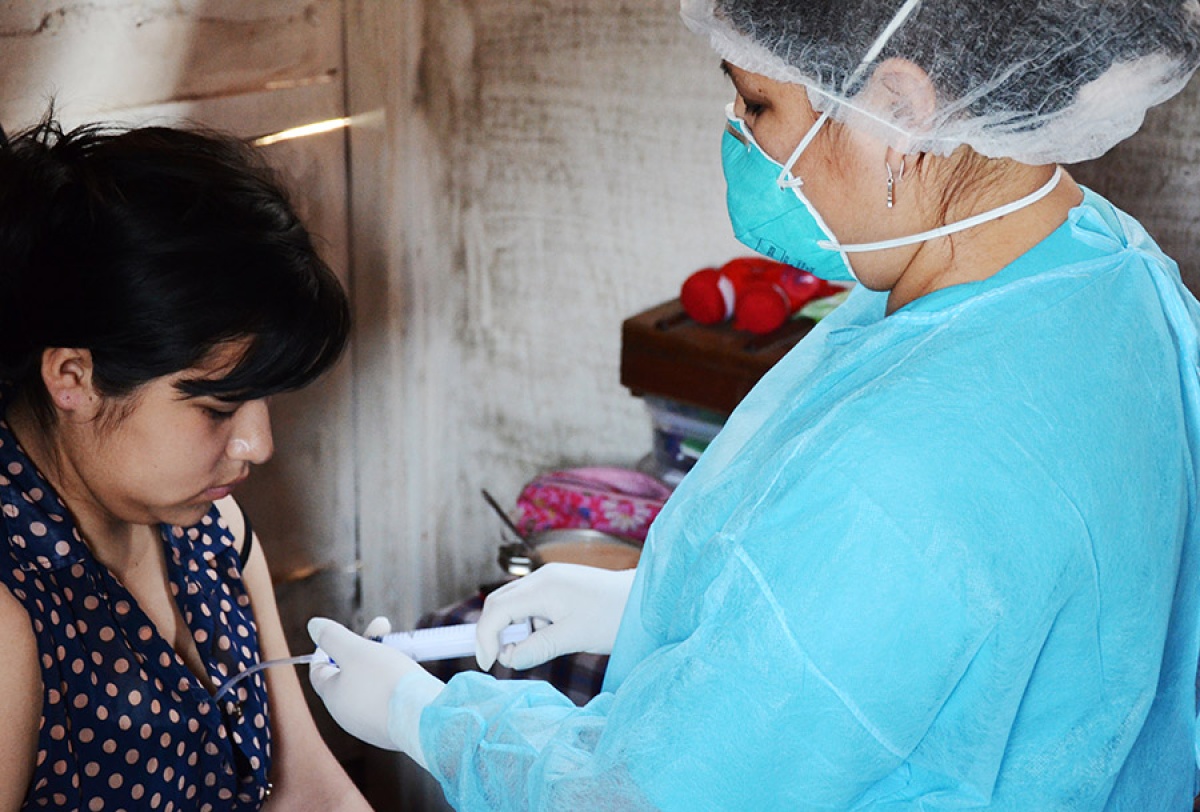‘You Have TB’: Melissa Sanchez's Story
Posted on Aug 20, 2014

Melissa Sanchez is a teenager living in Lima, Peru, who became sick with extensively drug-resistant tuberculosis. PIH’s Peruvian sister organization, Socios En Salud, supports her in-home treatment and helped construct a bedroom for her that would reduce the risk of exposing other family members to the illness. SES nurses visit Sanchez twice daily, delivering food packages and closely monitoring her treatment. Sanchez recently shared her story, which has been translated and edited below. She asked that her real name not be used, so Melissa Sanchez is a pseudonym.
“You have tuberculosis” were the words that changed my life forever.
It was June of 2013, and I was lying in bed in the pulmonology ward of the Sergio Bernales National Hospital in Lima, while the doctors explained to me why my lungs were strained and why I was coughing blood often. I was left stunned. Tuberculosis? How could it be possible? Why was this happening to me?
In the summer of 2013, my family received in our home a distant relative of my mother. Every day we ate breakfast and lunch together. One day my mom was talking with him and found out that he had an illness, and about a month after this person left, I began to feel sick. I had days with fever, headache, and I coughed and felt tired. I thought all this was because of a cold, and my mom would go to the pharmacy to buy cold medicines for me.
Nevertheless, my condition wasn’t getting better, and my symptoms continued. When my situation got worse, my mom realized that what was happening wasn’t normal. That is, at 17 years old, being a teenager, these colds don’t happen. My mom was worried and decided to take me to the health center, where they gave me a series of exams and they took an X-ray of my chest. The clinicians in charge, seeing my situation was serious, referred me urgently to the national hospital.
As soon as we arrived, they admitted me to the emergency department because of my fever, and later they hospitalized me in pulmonology. After a few days of hospitalization and a lot of tests, the doctors still didn’t know what was happening to me. I was very afraid; the doctor talked with my mother alone and I understood that things weren’t all right.
That’s how I ended up with an IV in my arm, in a hospital gown, taken forcefully from my paradise, and stuck in a white world with electronic sounds and food that was hardly edible. During my hospital stay, my family and I learned about tuberculosis and how we could manage it. However, the doctors still hadn’t diagnosed the type of TB I had. Days later the doctor confirmed what we most feared. It wasn’t simple TB, but the TB most resistant to drugs: extensively drug-resistant tuberculosis (XDR-TB).
I was very sick. The only thing I could think was, “I’m only 17 years old! How could this happen?” The fact that I was finishing my last year of high school didn’t help things. I didn’t know how people would react or what they would say. What would happen if they rejected me because of my illness? If they made fun of me? Could I make friends? And what would happen if my lungs didn’t respond? Would I cough blood forever?
I couldn’t abandon the treatment if I wanted to live.
As days went by, I came to accept my illness. The doctors told us there was a cure; I only needed to follow a long treatment. I couldn’t abandon the treatment if I wanted to live.
Today, I am almost finished with a year of treatment for XDR-TB, receiving fifth-line drugs through a central line they’ve implanted in my chest beneath the skin. Despite the difficult situation my family is living in, they haven’t abandoned me. They always give me the strength to go on.
As my disease has responded well to the treatment, my doctors decided I could receive treatment at home. This helped my mom in her work, because every day she leaves to work so we can eat. My sister, with her little son, takes care of me. I know that I should take care of myself to avoid infecting them, and I know that they love me and they would never leave me.
The central line in my chest and the pills I take every day are a cross I have to bear. I have side effects daily, including frequent diarrhea and gastritis from the quantity of pills I have to take. But I have to tolerate this, with a huge effort, and my family gives me strength to do so.
Now I only have to complete the treatment, and I don’t have much left. I always repeat this to myself.
Even though my family is humble and our economic situation is terrible, I have the hope that when I finish with this nightmare I will finish high school. I want to be someone; I want to study. I think that through studying I can get my mother and my sister out of this, and they’ll never have to experience this situation.

